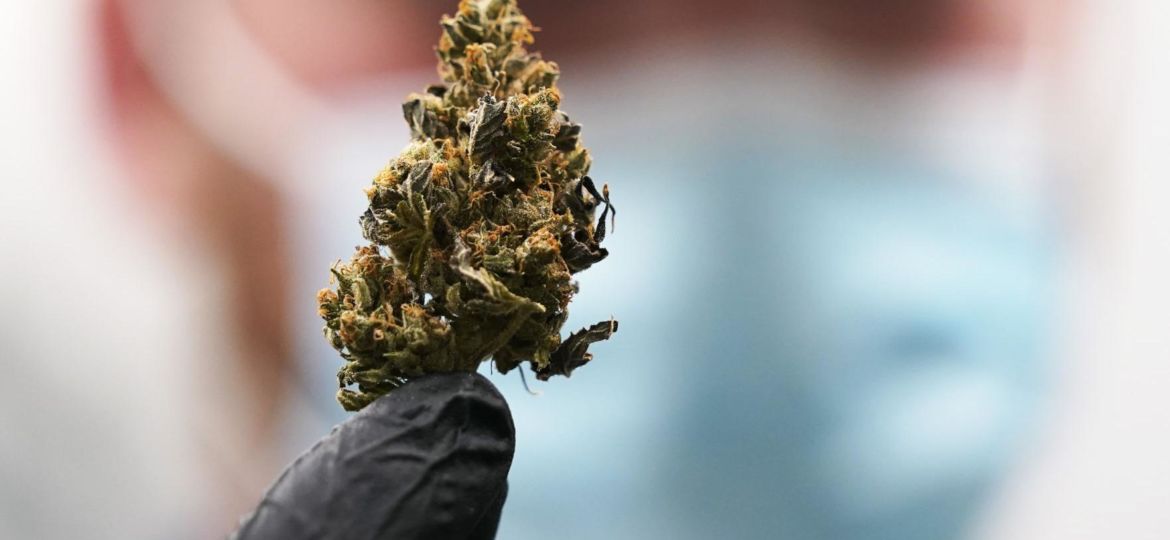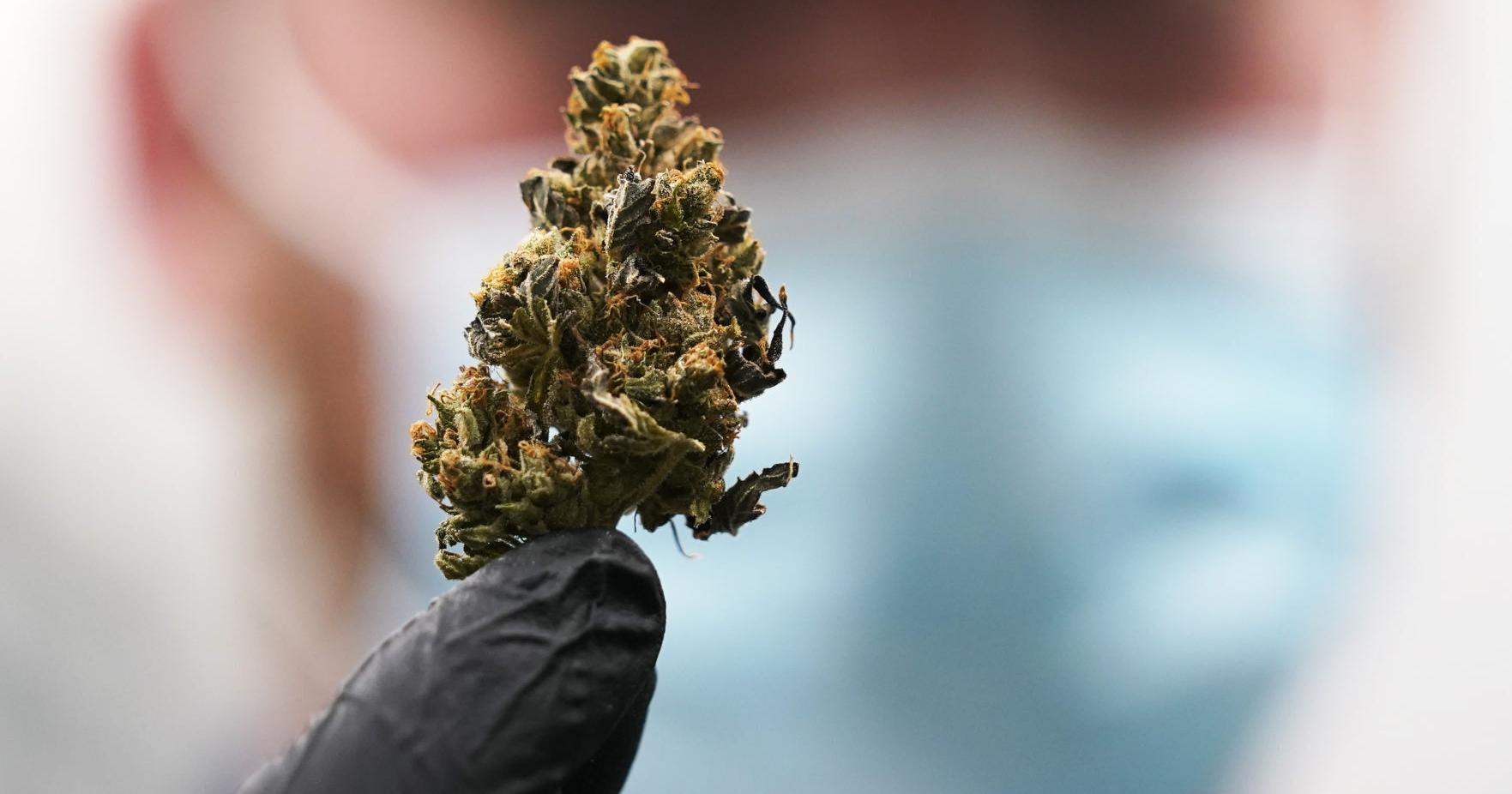

The fairly open medical marijuana law fashioned by Mississippi legislators is drawing large interest from entrepreneurs inside and outside of the state.
While opportunities are plentiful, so are the risks, say lawyers helping to guide aspiring medical marijuana businesspeople through the state’s regulatory process. Market players should bring strong nerves and acceptance of close scrutiny from regulators, according to the lawyers.
The state-level scrutiny will come from Mississippi’s Department of Health and Department of Revenue.
The Department of Health will issue licenses for and regulate all license types except dispensaries, which fall under the Department of Revenue, said Slates Veazey, a Jackson attorney and member of the Birmingham-based Bradley law firm’s cannabis group.
But no one is expecting the regulatory hoops to discourage potential participants from entering the budding market, Veazey said.
“I don’t think people appreciate what is coming here in terms of just business activity,” he said, and emphasized participation by ancillary businesses will be substantial. “We’ve got professional service providers like lawyers, CPAs, real estate agents, health-care providers — it touches on so many aspects of the economy.”
Interest is high in joining Mississippi’s medical marijuana industry
As an indicator of activity to come, Veazey said, look at neighboring Arkansas, where over a half billion dollars in sales have been generated since the inception of medical marijuana in 2019, including a reported $265 million in 2021. Arkansas had around 79,000 state-authorized cannabis patients by the end of 2021, state health officials say.
Veazey said the number of registrations of cannabis businesses with the Mississippi Secretary of State’s office reflects strong interest in cultivating, processing, retailing, transporting and providing security for the state’s newest cash crop.
“Interest is high. No pun intended,” said a staffer at the Secretary of State’s office.
No surprise there, said Connor Reeves, a former policy advisor to the Medical Marijuana 2020 campaign and Jackson attorney with the McLaughlin firm.
“There are a lot of good opportunities, a lot of chances for Mississippians to get involved in the new industry,” said Reeves, who previously served as general counsel to the Mississippi Medical Association and today is advising people who want to be on the ground floor of the state’s fledging medical cannabis sector.
“Our clients are moving full steam ahead for when licensing requirements go live this summer,” Reeves said. “Our phone has not stopped ringing for the past few weeks.”
A lot of private capital is already rolling in, according to Reeves, with a good portion of the new investment coming from Mississippians who have been successful in other industries.
The in-staters are not hesitant to call on cannabis professionals from across the country, Reeves said. “What we’re seeing is that folks in Mississippi are reaching out to out of state for expertise. That is a smart move. That is a good way to get started…”
What’s more, said Reeves, “We’re seeing a lot of Mississippians coming home” to join the new industry.
Bradley’s Veazey said he is hearing from a number of soon-to-be large cultivators around Jackson who think a lot of homegrown companies will materialize. Still, “I do believe there are some stabilized players in other markets who have partnered with Mississippians to get operations going,” Veazey said.
He said local trade groups have been created.
“They are forming a completely new network in the Mississippi business community,” Veazey added. “This is touching on so many other industries.”
The attorney expects capital investment will come from across the spectrum, ranging from investment from local families that have the funds to enter the market all the way up to equity groups.
Report points toward possible big job growth related to medical marijuana
Industry job creation could be substantial if it follows patterns set in other cannabis states. Leafly, a national web-based marijuana company and data surveyor of the industry, calls cannabis “America’s hidden job boom.”
The Seattle-based company’s 2021 jobs report, prepared with the help of Whitney Economics, estimated marijuana companies nationally hired 80,000 workers in 2020 to bring total job creation to an estimated 321,000 Americans. The total marked a 32 percent increase from last year, more than double the 2019 increase, according to Leafly.
The report says an estimated 321,000 Americans now work in the $10-billion-plus industry. This is a 32 percent increase from 2019, the report found.
Such numbers make legal marijuana one of the nation’s fastest-growing sectors, the Washington Post reported in a September 2021 article on cannabis job growth. “In other words: The United States now has more legal cannabis workers than dentists, paramedics or electrical engineers,” the Post reported.
Of the total jobs created, professional and technical workers — such as accountants, lab workers, marketers and tax experts — filled more than half, the Post article reported.
Corey Miller, Mississippi’s state economist, said the University Research Center he runs has not spent much time analyzing potential marijuana jobs creation in the state. He said he expects, however, that “some number of jobs will be created” throughout the supply chain of production, distribution and the dispensaries.
What are the fees associated with entering the medical cannabis sector?
Fees set by the state are as low as $1,500 (a one-time charge) for micro-cultivators of 1,000 square feet or less to a single application charge of $60,000 and yearly fee of $150,00 for more than 100,000 square feet; $2,000 for processors of less than 2,000 pounds annually and a $3,500 annual fee to $15,000 for more than 3,000 pounds along with a $20,000 annual fee. Licensed dispensaries must pay a one-time application fee of $15,000 and an annual license fee of $25,000.
A license to transport cannabis from one facility to another includes a one-time fee of $5,000 and annual fee of $7,500. Testing facilities will pay a one-time fee of $10,000 and an annual fee of $15,000. The same fees are set for research facilities.
What you need to know about Mississippi medical marijuana program
Here is a summary that Veazey and Jonathan Bares, a colleague in Bradley’s Jackson cannabis practice, prepared on entering Mississippi’s medical marijuana sector:
• Cities and counties have until May 3, 2022 to opt out of the cannabis program. Each can fully opt out, meaning no licensed cannabis business can operate in that jurisdiction, or they can choose which types of licensees to allow. If they opt out, they can opt back in later or voters can gather signatures for a special election on whether to opt back in.
• The MS Department of Health has until June 2, 2022 and the MS Department of Revenue has until July 2, 2022 to adopt regulations and activate an application process for licensees. Both agencies have 30 days to accept or reject an application once submitted.
• The Mississippi Department of Health will issue licenses for and regulate all license types except dispensaries, which fall under the Mississippi Department of Revenue.
• Certifying providers include physicians, physician assistants, nurse practitioners, and optometrists. Patients 25 or under must be certified by a physician. Each profession’s respective licensure board will likely adopt regulations particular to those professions’ involvement as certifiers.
• Generally, the licenses available include cultivators, processors, dispensaries, laboratories, transporters, and disposal companies.
• Dispensaries, research facilities and testing labs may be located in an area in a county or city that is zoned commercial or for which commercial use is authorized.
• Cultivation facilities and processing facilities may be located in an area in a county or city that is zoned agricultural or industrial or for which agricultural or industrial is authorized.
• The main entrance of a licensed facility must not be within 1,000 feet of the property line of any school, church, or daycare. If within 1,000 feet, the applicant must obtain a waiver from the school, church, or daycare.
• No dispensary may be located within 1,500 feet from the main point of entry of the dispensary to the main point of entry of another medical cannabis dispensary.

